Pomegranate Peel
How to submit an article:
- Registered users can submit any published journal article that has a unique DOI (Digital Object Identifier) name or link to Research Hub.
- For example, you can paste the full DOI link:
https://doi.org/10.1109/5.771073or just the DOI name:10.1109/5.771073into the field above and click submit. - The person who is first to submit a valid article to Research Hub will forever be credited for it, and every article submission earns you +6 Research Points.
Published research studies are articles that present the findings of original research that has undergone a peer-review process and has been made publicly available in scholarly journals, books or other media.
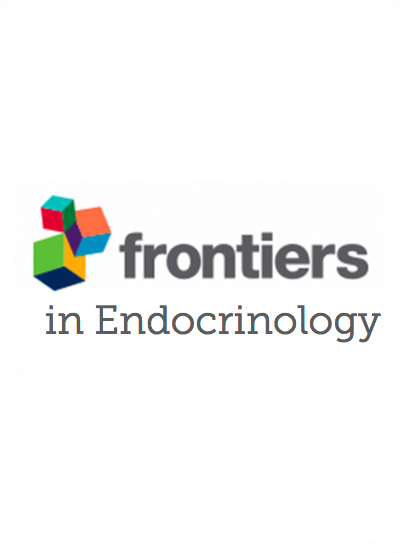
Modulatory effect of pomegranate peel extract on key regulators of ovarian cellular processes in vitro
2023 Nov 08 Frontiers in Endocrinology Kolesarova A, Baldovska S, Kohut L, Vasicek J, Ivanisova E, Arvay J, et al.
The study found that pomegranate peel extract had inhibitory effects on the metabolic activity of OVCAR-3 cells, increased CDKN1A levels, and influenced steroidogenesis in HGL5 cells, suggesting its potential as a (chemo)preventive agent for ovarian cancer.
Experimental Study Ovarian Cancer Pomegranate Peel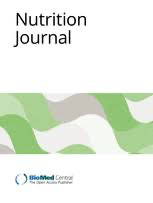
Pomegranate (Punica granatum L.) peel extract ameliorates metabolic syndrome risk factors in patients with non-alcoholic fatty liver disease: a randomized double-blind clinical trial
2023 Aug 22 Nutrition Journal Barghchi H, Milkarizi N, Belyani S, Norouzian Ostad A, Askari VR, Rajabzadeh F, et al.
Randomised Controlled Trial NAFLD Pomegranate PeelPomegranate peel extract, along with a calorie deficit diet, could improve risk factors of metabolic syndrome and reduce fatty liver in patients with non-alcoholic fatty liver disease.
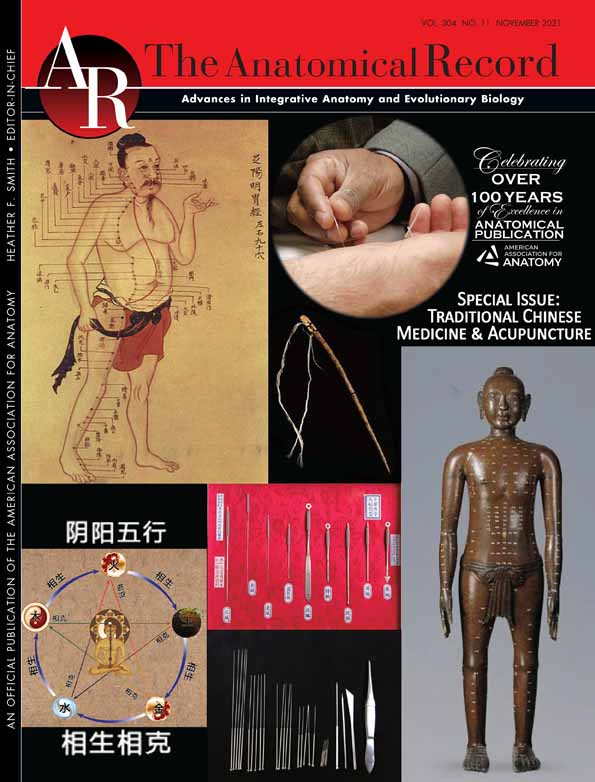
Pomegranate (Punica granatum) peel alleviates lithium‐induced alterations in the thyroid gland of rats by modulating apoptosis and oxidative stress
2022 Nov 18 The Anatomical Record El‐Din WAN, Fadel R, Rashid A, Al‐Mahameed AE, Othman MA
Experimental Study Animal Study Thyroid Disease Pomegranate Peel Oxidative StressPomegranate has been found to alleviate morphological and functional changes in the thyroid glands induced by Lithium Carbonate by controlling apoptosis and oxidative stress.

Pomegranate Peel as a Source of Bioactive Compounds: A Mini Review on Their Physiological Functions
2022 Jun 09 Frontiers in Nutrition Mo Y, Ma J, Gao W, Zhang L, Li J, Li J, et al.
Review Article Antibacterial Anticancer Cardiovascular Disease Anti-Inflammatory Pomegranate PeelThe underutilized pomegranate peel, full of abundant bioactive substances, could be repurposed for its potential health benefits like anti-inflammatory, anti-cancer, cardiovascular protection, and antibacterial activities.
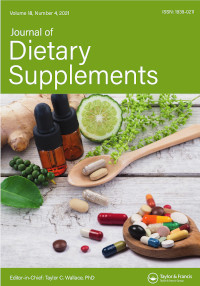
A Proprietary Herbal Blend Containing Extracts of Punica granatum Fruit Rind and Theobroma cocoa Seeds Increases Serum Testosterone Level in Healthy Young Males: A Randomized, Double-Blind Placebo-Controlled Study
2022 Feb 06 Journal of Dietary Supplements Sreeramaneni PGA, Yalamanchi A, Konda MR, Cherukuri SHV, Maroon JC
Randomised Controlled Trial Pomegranate Peel CocoaThe proprietary herbal blend LN18178 significantly boosts testosterone levels, muscle strength and mid-upper arm circumference in young, healthy males.
Research insights are moderated by the Research Hub team and offer an at-a-glance overview of interesting research findings.

2023 Nutrition Journal
Pomegranate peel extract, along with a calorie deficit diet, could improve risk factors of metabolic syndrome and reduce fatty liver in patients with non-alcoholic fatty liver disease.
Randomised Controlled Trial NAFLD
Pomegranate (Punica granatum L.) peel extract ameliorates metabolic syndrome risk factors in patients with non-alcoholic fatty liver disease: a randomized double-blind clinical trial
Barghchi H, Milkarizi N, Belyani S, Norouzian Ostad A, Askari VR, Rajabzadeh F, et al.

2022 The Anatomical Record
Pomegranate has been found to alleviate morphological and functional changes in the thyroid glands induced by Lithium Carbonate by controlling apoptosis and oxidative stress.
Experimental Study Oxidative Stress Thyroid Disease
Pomegranate (Punica granatum) peel alleviates lithium‐induced alterations in the thyroid gland of rats by modulating apoptosis and oxidative stress
El‐Din WAN, Fadel R, Rashid A, Al‐Mahameed AE, Othman MA

2022 Frontiers in Nutrition
The underutilized pomegranate peel, full of abundant bioactive substances, could be repurposed for its potential health benefits like anti-inflammatory, anti-cancer, cardiovascular protection, and antibacterial activities.
Review Article Anti-Inflammatory Antibacterial Anticancer Cardiovascular Disease
Pomegranate Peel as a Source of Bioactive Compounds: A Mini Review on Their Physiological Functions
Mo Y, Ma J, Gao W, Zhang L, Li J, Li J, et al.

2022 Journal of Dietary Supplements
The proprietary herbal blend LN18178 significantly boosts testosterone levels, muscle strength and mid-upper arm circumference in young, healthy males.
Randomised Controlled Trial Cocoa
A Proprietary Herbal Blend Containing Extracts of Punica granatum Fruit Rind and Theobroma cocoa Seeds Increases Serum Testosterone Level in Healthy Young Males: A Randomized, Double-Blind Placebo-Controlled Study
Sreeramaneni PGA, Yalamanchi A, Konda MR, Cherukuri SHV, Maroon JC
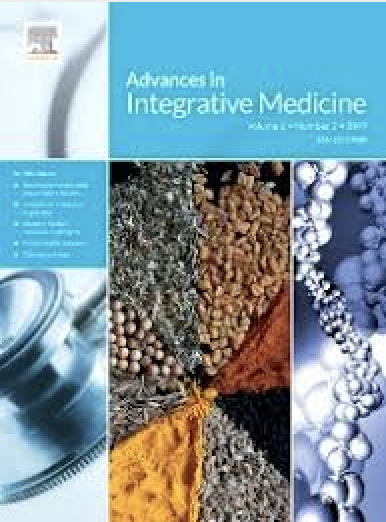
2021 Advances in Integrative Medicine
Pomegranate peel extract supplementation can decrease total cholesterol and triglyceride levels while boosting antioxidant status in obese women with knee osteoarthritis.
Randomised Controlled Trial Knee Osteoarthritis
Effects of pomegranate (Punica granatum L.) peel extract supplementation on serum lipid profile and oxidative stress in obese women with knee osteoarthritis: A double blind, randomized, placebo controlled study
Haghighian MK, Rafraf M, Hemmati S, Haghravan S, Asghari-Jafarabadi M
Review Articles
Review articles summarise and critically evaluate the current state of research on a specific topic or field by synthesising multiple primary research studies.
Clinical Trials
Clinical trials are research studies that involve people and are conducted to evaluate the safety and efficacy of new treatments or interventions, such as drugs, medical devices, or behavioural therapies.

Pomegranate (Punica granatum L.) peel extract ameliorates metabolic syndrome risk factors in patients with non-alcoholic fatty liver disease: a randomized double-blind clinical trial
2023 Aug 22 Nutrition Journal Barghchi H, Milkarizi N, Belyani S, Norouzian Ostad A, Askari VR, Rajabzadeh F, et al.
Randomised Controlled Trial NAFLD Pomegranate PeelPomegranate peel extract, along with a calorie deficit diet, could improve risk factors of metabolic syndrome and reduce fatty liver in patients with non-alcoholic fatty liver disease.

A Proprietary Herbal Blend Containing Extracts of Punica granatum Fruit Rind and Theobroma cocoa Seeds Increases Serum Testosterone Level in Healthy Young Males: A Randomized, Double-Blind Placebo-Controlled Study
2022 Feb 06 Journal of Dietary Supplements Sreeramaneni PGA, Yalamanchi A, Konda MR, Cherukuri SHV, Maroon JC
Randomised Controlled Trial Pomegranate Peel CocoaThe proprietary herbal blend LN18178 significantly boosts testosterone levels, muscle strength and mid-upper arm circumference in young, healthy males.

A proprietary blend of standardized Punica granatum fruit rind and Theobroma cocoa seed extracts mitigates aging males' symptoms: A randomized, double-blind, placebo-controlled study
2022 Jan International Journal of Medical Sciences Pandit SL, Yaligar D, Halemane M, Bhat A
LN18178 supplementation reduced AMS scores and improved sexual performance. Also, LN18178 groups exhibited superior muscular strength and reduction in perceived stress. Total blood chemistry and urine analysis demonstrated the broad-spectrum safety.
Randomised Controlled Trial Anti-Ageing Hand-Grip Strength Cocoa Pomegranate Peel
Effects of pomegranate (Punica granatum L.) peel extract supplementation on serum lipid profile and oxidative stress in obese women with knee osteoarthritis: A double blind, randomized, placebo controlled study
2021 May Advances in Integrative Medicine Haghighian MK, Rafraf M, Hemmati S, Haghravan S, Asghari-Jafarabadi M
Randomised Controlled Trial Knee Osteoarthritis Pomegranate PeelPomegranate peel extract supplementation can decrease total cholesterol and triglyceride levels while boosting antioxidant status in obese women with knee osteoarthritis.
Study Protocols
Published study protocols are detailed plans that outline the objectives, methodology, statistical analyses, and organisation of a research study that have been made publicly available for others to review and use as a reference.
Presentation Slides

Randomised Controlled Trial
Pomegranate peel extract, along with a calorie deficit diet, could improve risk factors of metabolic syndrome and reduce fatty liver in patients with non-alcoholic fatty liver disease.
Barghchi H, Milkarizi N, Belyani S, Norouzian Ostad A, Askari VR, Rajabzadeh F, Goshayeshi L, Ghelichi Kheyrabadi SY, Razavidarmian M, Dehnavi Z, Sobhani SR, Nematy M

Experimental Study
Pomegranate has been found to alleviate morphological and functional changes in the thyroid glands induced by Lithium Carbonate by controlling apoptosis and oxidative stress.
El‐Din WAN, Fadel R, Rashid A, Al‐Mahameed AE, Othman MA

Review Article
The underutilized pomegranate peel, full of abundant bioactive substances, could be repurposed for its potential health benefits like anti-inflammatory, anti-cancer, cardiovascular protection, and antibacterial activities.
Mo Y, Ma J, Gao W, Zhang L, Li J, Li J, Zang J

Randomised Controlled Trial
The proprietary herbal blend LN18178 significantly boosts testosterone levels, muscle strength and mid-upper arm circumference in young, healthy males.
Sreeramaneni PGA, Yalamanchi A, Konda MR, Cherukuri SHV, Maroon JC

Randomised Controlled Trial
Pomegranate peel extract supplementation can decrease total cholesterol and triglyceride levels while boosting antioxidant status in obese women with knee osteoarthritis.
Haghighian MK, Rafraf M, Hemmati S, Haghravan S, Asghari-Jafarabadi M
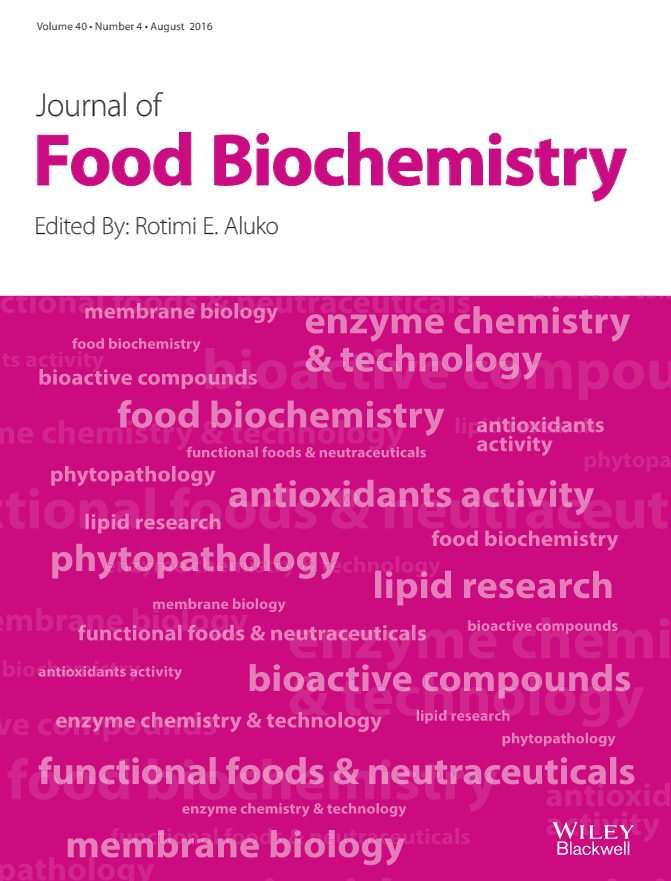
Animal Study
Pomegranate rind extract has been found to decrease pain and inflammation, suggesting it could contribute to treating rheumatoid arthritis.
Karwasra R, Singh S, Sharma D, Sharma S, Sharma N, Khanna K
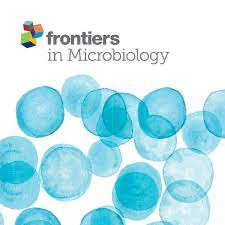
Experimental Study
Pomegranate extracts and a probiotic strain have shown a combined effect in reducing fat content and the development of fat cells, potentially useful in preventing and treating obesity.
Sorrenti V, Randazzo CL, Caggia C, Ballistreri G, Romeo FV, Fabroni S, Timpanaro N, Raffaele M, Vanella L

Punicalagin, extracted from the fruit peel of Punica granatum, displays strong antifungal activity against Candida species, especially when combined with fluconazole.
Endo EH, Garcia Cortez DA, Ueda-Nakamura T, Nakamura CV, Dias Filho BP
Executive Summary
Write an executive summary in the form of a blog article on the topic of "Research into Chinese medicine treatment for Pomegranate Peel" summarising the research below and using language that can be easily understood by patients and avoiding medical jargon using a professional and caring tone of voice.
Write an executive summary in the form of a blog article on the topic of "Researched Chinese medicine treatments for Pomegranate Peel" summarising the research below in an objective and easy to understand way, and using language that can be easily understood by patients. Group the article into Chinese medicine treatments first, followed by nutrition and other treatments. Avoid using medical jargon and use a professional and caring tone of voice.
Write me a concise but easy to understand executive summary on the topic of "Chinese medicine treatments for Pomegranate Peel" based on the following research that I will give you. Your summary should be 2 paragraphs long in Australian English spelling and include references to the studies.
A Randomised Controlled Trial published in 2023 in the journal Nutrition Journal found that Pomegranate peel extract, along with a calorie deficit diet, could improve risk factors of metabolic syndrome and reduce fatty liver in patients with non-alcoholic fatty liver disease. In the first phase, the research involved the hydro-alcoholic extraction of the peel of 750 kilograms of pomegranate using the soaking method. The second phase saw patients with non-alcoholic fatty liver disease divided into two groups - a placebo group and a pomegranate peel capsule group. Both groups followed a diet with a 500 kcal deficit for eight weeks. Aspects like intolerance to the treatment, participants' dietary intake, their lipid and glycemic profiles, blood pressure, body composition, insulin resistance indexes and changes in fatty liver disease evaluated through elastography were monitored. Further, the study reported substantial decreases in multiple indicators such as body weight, waist circumference, body mass index, body fat index, trunk fat, blood pressure, total cholesterol, triglyceride levels, LDL cholesterol, fat free mass, and fasting blood sugar in the group that took pomegranate peel capsules compared to the placebo group. Meanwhile, HDL cholesterol and liver steatosis and stiffness saw improvement. No significant differences, however, were found in the insulin and homeostatic model assessment for insulin resistance between the two groups.
A Experimental Study published in 2022 in the journal The Anatomical Record found that Pomegranate has been found to alleviate morphological and functional changes in the thyroid glands induced by Lithium Carbonate by controlling apoptosis and oxidative stress. The study divided rats into four groups: control, lithium, lithium-pomegranate, and pomegranate. For eight weeks, the rats were treated according to their respective group assignments. Following this period, they were sacrificed, and an array of assessments were conducted on the extracted thyroid glands. These evaluations included estimated levels of thyroid hormones and markers indicating oxidative stress, along with histological, immunohistochemical, and ultrastructural evaluations of the thyroid tissues. Observations in the group treated with lithium carbonate showed significant changes in thyroid hormone levels along with an increased expression of the oxidant marker and decreased expression of the antioxidant marker. Additionally, histological evaluation highlighted disorganization and follicle involution, a decline in both staining intensity and immunoreactivity of an antioxidant enzyme, an increase in collagen fiber content and Bax immunoreactivity, and marked distortions in follicular ultrastructure. However, in the group treated with both lithium carbonate and pomegranate, most of these changes were substantially mitigated, thereby indicating the potential protective role of pomegranate against lithium-induced alterations.
A Review Article published in 2022 in the journal Frontiers in Nutrition found that The underutilized pomegranate peel, full of abundant bioactive substances, could be repurposed for its potential health benefits like anti-inflammatory, anti-cancer, cardiovascular protection, and antibacterial activities. This paper conducts a miniature review of the characterization and physiological functions of the key bioactive compounds present in pomegranate peel. The exploration underscores the main phenolic compounds in the peel, illustrating substances such as tannins, flavonoids, phenolic acids, dietary fibers, alkaloids, minerals, and vitamins. A deep understanding of these components and their potential benefits is vital to the study and future applications. The research finds that these core components essentially function as antioxidants, either enhancing oxidative biomarkers or proactively neutralizing reactive oxygen species. By establishing these key functions, it essentially links these activities to a broader context of benefits, including but not limited to anti-inflammatory, anti-cancer, cardiovascular protection, and antibacterial attributes, thereby indicating a potential for substantial health benefits. With comprehensive understanding and appropriate application of these substances, the pomegranate peels, often classified as waste, could find a new life as robust health-enhancing elements.
A Randomised Controlled Trial published in 2022 in the journal Journal of Dietary Supplements found that The proprietary herbal blend LN18178 significantly boosts testosterone levels, muscle strength and mid-upper arm circumference in young, healthy males. In a randomized, double-blind, placebo-controlled study involving 120 male volunteers aged between 21 and 35 years, participants were arranged into three groups. Each group received a daily dose of either a placebo or 200 or 400 mg of LN18178 for a duration of 56 days. The primary focus of the study was to measure the potential increase in serum testosterone levels (both free and total). Secondary measures incorporated other hormones like dihydrotestosterone, cortisol, and Luteinizing hormone, as well as physical indicators such as hand grip strength and mid-upper arm circumference. Additionally, thorough checks were run pertaining to each participant's vital signs and clinical chemistry parameters in blood and urine to ensure product safety. After the intervention, both dosage levels of LN18178 significantly raised free testosterone levels. The higher dose group also showed noteworthy increases in total testosterone and luteinizing hormone levels. Meanwhile, the other hormone changes were found to be statistically insignificant. More importantly, the LN18178-400 group displayed significant enhancements in their hand grip strength and mid-upper arm circumference post-trial. The completion of the trial saw participants' vital signs and hemato-biochemical parameters within the normal range, suggesting that LN18178 is both safe and tolerable.
A Randomised Controlled Trial published in 2021 in the journal Advances in Integrative Medicine found that Pomegranate peel extract supplementation can decrease total cholesterol and triglyceride levels while boosting antioxidant status in obese women with knee osteoarthritis. The research was a randomized, double-blind placebo-controlled trial involving 66 obese women aged 38 to 60 years old with knee osteoarthritis. These participants were split into two groups, the intervention group and control group, each containing 33 members. The intervention group received pomegranate peel extract capsules (500 mg) twice daily for 8 weeks including standard drug therapy while the control group was given a placebo during the same period. All participants' fasting blood samples, anthropometric measurements, dietary intake data, and physical activity levels were collected both before the start and at the end of the trial. Results analysis showed that pomegranate peel extract supplementation brought down levels of serum total cholesterol, triglyceride and an oxidative stress marker while enhancing levels of some antioxidant enzymes and the overall antioxidant capacity when compared to the control group. However, there were no noticeable alterations between the two groups in terms of low-density lipoprotein cholesterol, high-density lipoprotein cholesterol, and body mass index by the end of the experiment.
A Animal Study published in 2019 in the journal Journal of Food Biochemistry found that Pomegranate rind extract has been found to decrease pain and inflammation, suggesting it could contribute to treating rheumatoid arthritis. The researchers tested the effects of various doses of pomegranate rind extract on Wistar rats within established models of pain and inflammation, such as eddy's hot plate-induced algesia, carrageenan, and Complete Freund's adjuvant-induced models. Indomethacin was also evaluated for comparison. Researchers used bioactive compounds such as phenolics and flavanoids, both of which are known for their potent antioxidant activity. The results observed showed that a dose of 200 mg/kg of pomegranate led to a clear reduction in paw swelling in the rats in both inflammation models. The data further revealed an increase in pain threshold. Through these results, it was determined that pomegranate extract acts to reduce pain and inflammation by inhibiting the activation of a number of inflammatory markers. Furthermore, this study presents the first report on the inhibitory mechanism of these markers by pomegranate rind extract, which is enriched with tannins and flavanoids.
A Experimental Study published in 2019 in the journal Frontiers in Microbiology found that Pomegranate extracts and a probiotic strain have shown a combined effect in reducing fat content and the development of fat cells, potentially useful in preventing and treating obesity. The study was conducted to uncover the prebiotic potential of water-soluble pomegranate extract, characterized by its phenolic content. This was done by the use of High Performance Liquid Chromatography with Photodiode Array Detector and Electrospray Ionization/Mass Spectra (HPLC-PDA-ESI/MS). The investigation also involved testing the effects of the pomegranate extract and probiotic GG ATCC 53103 strain (LGG) on the 3T3-L1 cell line, to shed light on their impact on fat production and storage within cells. The study appears to showcase that the combination treatment of pomegranate extract and LGG have substantial effects in lowering the creation and accumulation of fat within cells. It was observed that the combined treatment was most effective in reducing triglyceride content and intracellular lipid accumulation. Furthermore, mRNA expression levels of the main transcriptional factors implicated in adipocyte differentiation were substantially lower in cells treated with this combination. These observations suggest a synergistic effect of probiotics and polyphenols contained in pomegranate extract, with the potential to influence fat cell development and offer benefits in addressing obesity.
A published in 2010 in the journal Research in Microbiology found that Punicalagin, extracted from the fruit peel of Punica granatum, displays strong antifungal activity against Candida species, especially when combined with fluconazole. Methodology: The study made use of an activity-guided repeated fractionation process on a silica-gel column to isolate a compound from a crude hydro alcoholic extract of Punica granatum fruit peel. Upon analysis, this compound was identified as punicalagin. Its antifungal activity against Candida albicans and Candida parapsilosis was tested, alongside its combined effectiveness with fluconazole. Further tests were conducted using disk-diffusion, checkerboard assays, and time-kill curves to confirm the compound's synergy with fluconazole. Results: Punicalagin exhibited considerable antifungal activity against Candida organisms, including Candida albicans and Candida parapsilosis. When combined with fluconazole, punicalagin resulted in a two-fold decrease in the MIC for fluconazole, indicating a synergistic interaction. Further visual investigations, through scanning and transmission electron microscopy, showed that treated yeast cells exhibited an irregular budding pattern, pseudohyphae, and changes in cell morphology including a thicker cell wall, alterations in the distance between the cell wall and the plasma membrane, and the presence of vacuoles.
Moderation Tools
Topic
Sign In
Users not signed in are limited to viewing the 5 most recent items of content.